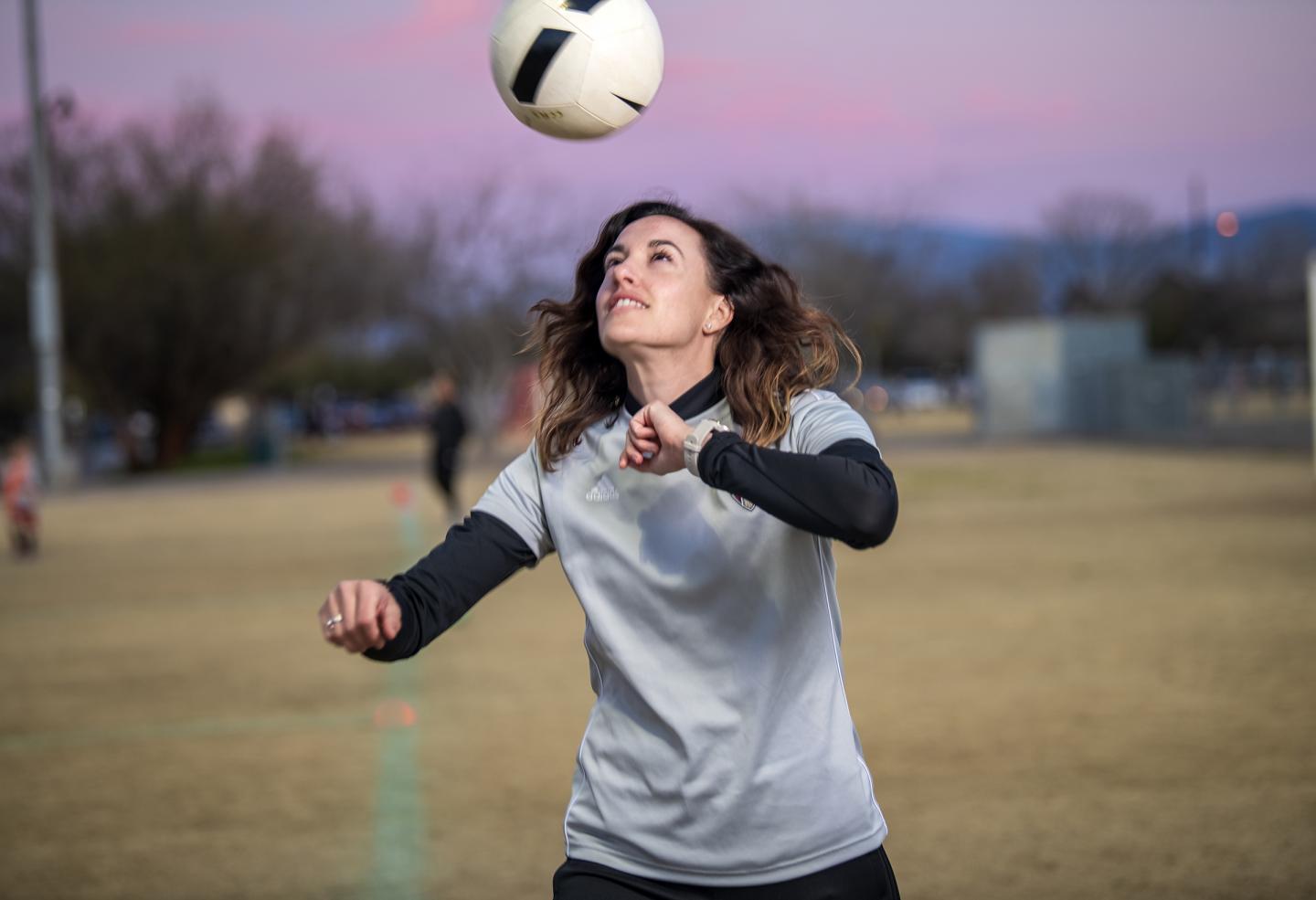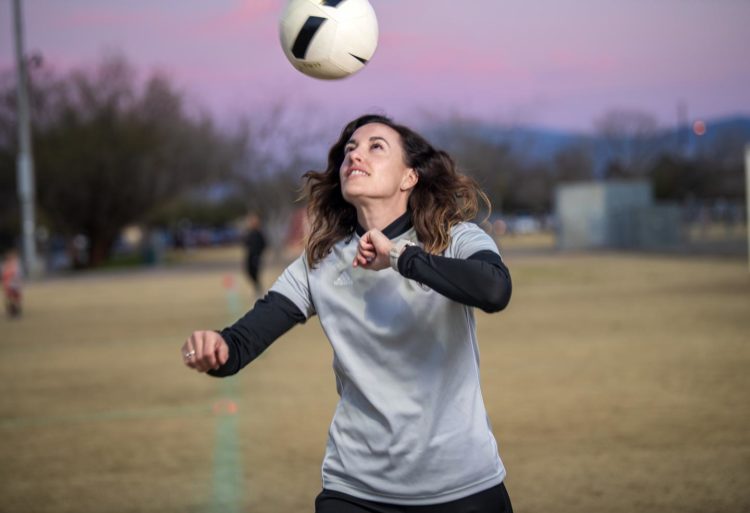Researchers at the University of Arizona’s College of Medicine — Tucson have teamed with scientists at two other institutions to identify the cause of post-brain injury headaches and uncover a potential new therapy for millions of patients

Credit: (Photos: The University of Arizona Health Sciences, Noelle Haro-Gomez)
TUCSON, Ariz. – As she jumped to head a soccer ball during her junior year of college, Kelly Farrell collided skulls with a teammate. She later was diagnosed with a concussion, which proved to be severely debilitating.
“I had a lot of trouble concentrating in school and class,” said Farrell, a physical therapist and Tucson native, who experienced a constant headache for two days after her concussion. Even after the initial pain subsided, her headache was reactivated by noise, bright light and studying on her computer.
Each year, traumatic brain injuries such as concussions cause nearly 2.5 million visits to an emergency room. The most common problem associated with concussions is headache. In an effort to develop a treatment, researchers at the University of Arizona College of Medicine – Tucson collaborated in a preclinical study with scientists at Teva Biologics and the Mayo Clinic to identify the cause of post-concussion headaches and a possible therapy for the millions of patients who experience this pain each year.
With Edita Navratilova, PhD, assistant professor in the Department of Pharmacology, as lead author and Frank Porreca, PhD, associate head of the department, as a co-author, the group published its findings in Cephalalgia in September 2019.
The scientists investigated whether a drug that blocks a substance elevated in migraine patients, calcitonin gene-related peptide (CGRP), would alleviate the headache pain by modeling human concussion in mice and assessing post-injury pain sensitivity. Researchers administered the anti-CGRP treatment twice – two hours and then seven days after the injury – and found the two doses significantly reduced pain responses.
In addition to immediate or acute headaches, long-lasting or persistent post-traumatic headaches affect injured patients, Dr. Porreca said.
Researchers assessed persistent post-traumatic headaches in their mouse model. Bright light reactivated headaches in injured mice 14 days after injury but caused no headaches in healthy mice.
To prevent stress-induced headaches, scientists administered an additional drug dose before the bright-light stress. When administered before the stress, in addition to after the injury, the drug not only prevented the immediate headache but also prevented bright light from reactivating the headache.
Researchers concluded that CGRP may be the link between traumatic brain injuries and post-injury headaches.
“The sustained prevention of the actions of CGRP with an antibody treatment administered early after a mild traumatic brain injury prevents post-traumatic headache in our preclinical model, as well as the vulnerability for development of persistent post-traumatic headache,” Dr. Porreca said.
“The encouraging aspect is that we do have a mechanism which seems to be driving some aspect of the pain, and if treated at the right time in this preclinical model, it seems to be effective,” Dr. Porreca said. Although the timing and dosage of the drug would need to be adapted to humans in future clinical trials, he added, it appears immediate treatment is critical to the therapy’s success.
###
NOTE: Photos available upon request.
Media Contact
George Humphrey
[email protected]
520-626-7255
Related Journal Article
http://dx.





